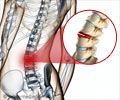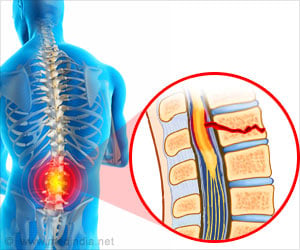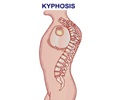- Poor posture can lead to spondylitis, migraines, and chronic neck and back pain
- Learn key tips to improve posture, including regular breaks, proper ergonomics, and core-strengthening exercises
- On World Spine Day 2023, join the global movement for spinal health and wellbeing
What Causes Spine Problems?
There are several causes of poor posture, including prolonged sitting, incorrect ergonomics, muscle weakness, and long-term habits like slouching or hunching.The repercussions of poor posture on the body are significant and can lead to various health problems:
- Spondylitis: Poor posture can contribute to conditions such as spondylitis, characterized by inflammation of the vertebrae, resulting in chronic back pain and stiffness.
- Migraine: Incorrect posture strains neck muscles, potentially causing tension headaches and migraines, often felt at the base of the skull or in the forehead.
- Neck and back pain: Poor posture places excessive stress on the spine, leading to chronic discomfort in the neck and back.
- Carpal tunnel syndrome: Inadequate positioning of the wrist and hand during activities can compress the median nerve, leading to numbness and pain in the hand and wrist.
- Tendinitis: Poor posture can contribute to overuse injuries, including tendinitis, characterized by inflammation of the tendons.
- Misaligned spine: Bad posture can negatively affect the alignment of the spine, potentially leading to spinal misalignment and muscle spasms.
- Constipation: Hunching over while sitting on the toilet, with the knees below the hips, can result in constipation by obstructing the anus and impeding abdominal muscle function.
- Poor sleep: Poor posture can place your muscles in uncomfortable positions, leading to restlessness at night as you seek a more comfortable sleeping position for your back and neck (1✔ ✔Trusted Source
Posture
Go to source).
How to Correct your Spine Posture?
- Take regular breaks to stand, stretch, and move around, particularly during prolonged periods of sitting.
- Ensure proper ergonomics at your workstation, including chair height, monitor position, and keyboard placement.
- Engage in exercises that strengthen core muscles, promoting good posture, such as yoga, Pilates, and strength training.
- Be mindful of your body position while sitting, standing, and moving, avoiding slouching or hunching.
- Practice relaxation techniques like deep breathing and visualization to relax your muscles and reduce tension. Additionally, avoid remaining in one position for extended periods by alternating between sitting and standing and adjusting your posture regularly.
Are you Having Spine Pain
What Causes Pain in the Spine?
Engaging in repetitive, heavy lifting or sudden, awkward movements can lead to strain in the back muscles and spinal ligaments. Individuals in poor physical condition may experience painful muscle spasms due to constant strain on the back. Additionally, issues like bulging or ruptured disks, which serve as cushions between spinal bones, can contribute to back pain.
How do you know if your Spine Pain is Serious?
If your back pain awakens you during the night or worsens in specific positions, such as when lying down, it may indicate a more serious underlying issue. This could signify a systemic problem like an infection, fracture, severe nerve compression, or cancer. It is crucial to seek prompt medical attention if you experience these symptoms to receive an accurate diagnosis and appropriate treatment.
How to Relieve Spine Pain?
Here are eight tips to help alleviate back pain and maintain a healthy back:
- Strengthen Your Core Muscles: Engage in exercises that target the muscles in your abdomen and lower back to provide support to your spine.
- Stretch Daily: Incorporate regular stretching routines to improve flexibility and relieve tension in your back muscles.
- Avoid Sitting with Poor Posture: Practice good posture while sitting to reduce strain on your back. Sit with your back straight and shoulders relaxed.
- Take Walks: Regular walks can help improve circulation and relieve pressure on your back. Aim for short, frequent walks throughout the day.
- Lift Correctly: When lifting objects, use your legs and not your back. Bend your knees, keep the object close to your body, and avoid twisting.
- Reduce Pressure on Your Back When You Sleep: Use a supportive mattress and pillows that maintain the natural curve of your spine. Avoid sleeping on your stomach.
- Watch Your Weight: Maintain a healthy weight to reduce excess stress on your spine and lower back.
- Quit Smoking: Smoking can impede blood flow to the spine and inhibit the healing process. Quitting can improve overall back health.
What is the most Common Spine Pain?
Spinal pain in the lumbar region (lower back) and cervical region (neck) is highly prevalent and is often the cause of many lost work days.
Can Spine Pain be Cured?
To answer this, it's important to note the underlying cause. For instance, if the pain is due to an infection, it may resolve after completing a course of antibiotics. On the other hand, if it's caused by spinal degeneration, ongoing treatment may be necessary. It's advisable to consult a healthcare professional for personalized advice and treatment options.
Remember, a healthy spine is the foundation of a healthy life. Let's all commit to moving towards better spinal health.
Reference:
- Posture - (https://www.betterhealth.vic.gov.au/health/conditionsandtreatments/posture)
Source-Medindia















